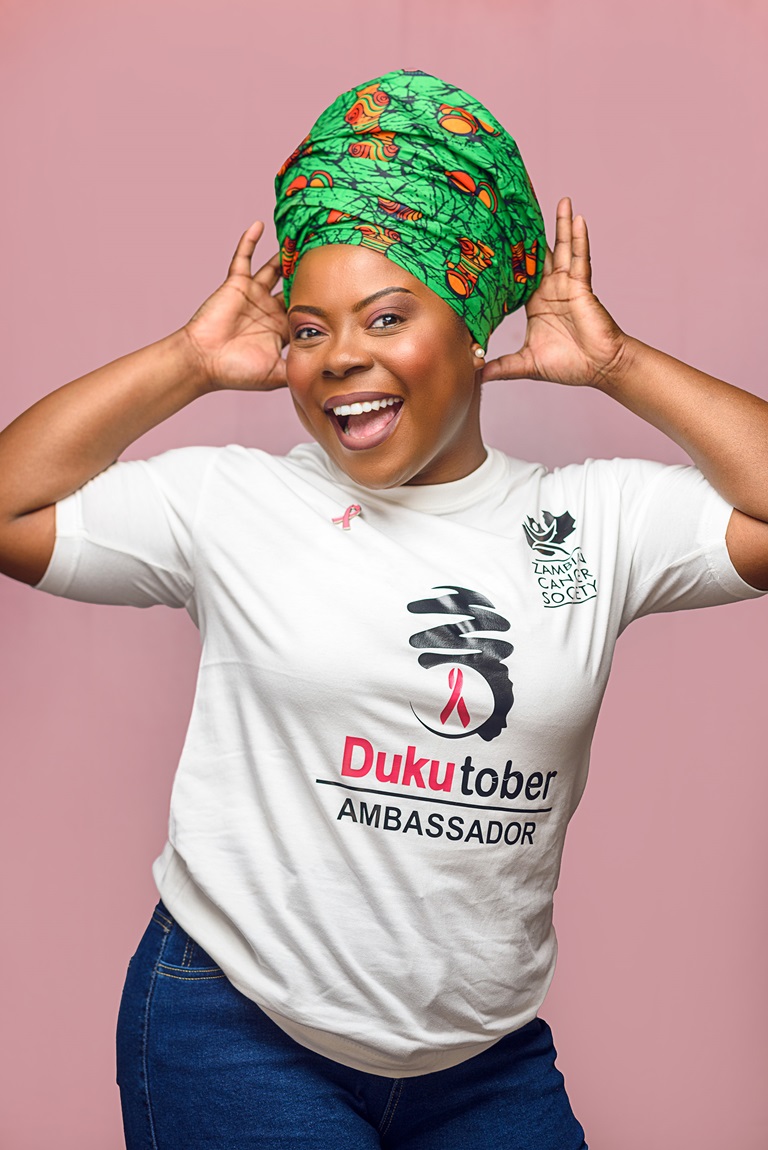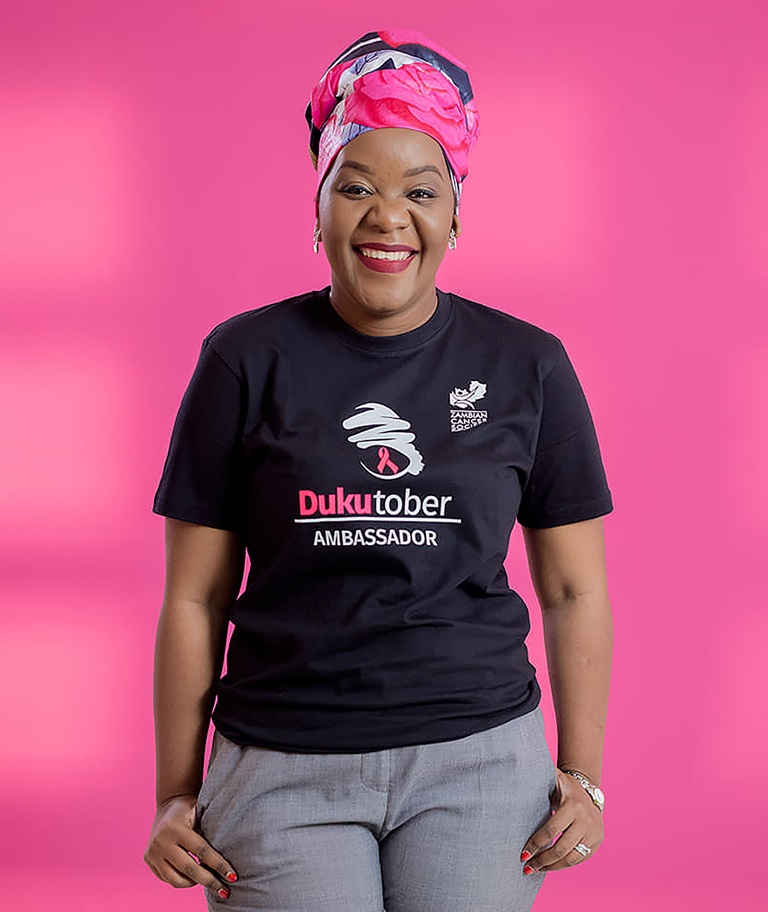While breast cancer has a high media profile in many parts of the world, the concept of breast health is still taboo in numerous communities. This was the reason that the Zambian Cancer Society (ZCS), created the “Duku Challenge”. Across Zambia, men and women were asked to wear a head scarf, called a Duku, as a show of solidarity with breast cancer survivors. This has now become an annual October event with multiple on and offline events, including sharing information and survivor stories, engaging with businesses and encouraging early detection. The events take place over the month, hence the combination of words Duku and October into Dukutober.

Idah Phiri, Communications and Administration Manager, Zambian Cancer Society.
Photo credit: Namukolo Siyumbwa / Eness Photography
In the past, you would rarely hear people ask about cancer...some people would say cancer is cancer, that what you don’t know won’t kill you.
A small department of 35 staff, within the Zambian Qualifications Authority (ZAQA), a Zambian government association, decided to join in. In 2023, they wore t-shirts and had a cancer awareness talk every Friday at lunchtime. The most important was to “make it fun: don’t bore people” explains Mulenga Mwansabamba Mwanza, a Dukutober supporter who participated. She remembers it as enjoyable and interesting as well as informative and insightful. The normal Friday team building lunch was converted into a cancer awareness talk during October. Cancer survivors and medical experts were asked to share their experiences. A nurse and doctor, both female, were made available for private sessions to those who wanted them, and breast cancer clinical sessions with nurses were available for anyone who wanted to participate. Questions were encouraged and clear information given. Some of the most common questions were on how and why to check for breast cancer and how to increase their breast awareness.
In Zambia, and in other parts of the world, there has been an acceptance of cancer as an unchanging part of life. There was low awareness and discussion on how to prevent, detect and get treatment for cancer. In 2022, it was estimated that more than 15 000 people get cancer, and 9000 died each year. In settings where early detection and treatment are accessible, 5-year survival rate from breast cancer exceeds 80%. In contrast, in settings with weaker health systems, a majority of women with breast cancer are diagnosed at an advanced stage of disease and 5-year survival rates are lower, ranging from 10% to 40%.
Between 60% to 70% of women in African countries are diagnosed at a late stage, and only 1 in 2 women diagnosed with breast cancer in an African country will survive 5 years.
Since its creation, Dukutober has extended beyond breast cancer to include cervical cancer, which is the only cancer that can be eliminated through vaccination, screening and treatment. Combined, breast and cervical cancer are over 30% of cancer cases in Zambia.

Janice Matwi, Country Manager Accountant participating in the Dukutober events.
Photo credit: Chibesa Mulumba / Gspeed Photography
The message should be early detection saves lives because that’s the whole point.
Getting the message out that early detection of breast and cervical cancer saves lives is part of both the WHO Global Breast Cancer Initiative and the WHO Cervical Cancer Elimination Initiative. The question as to whether or not a person has cancer can cause apprehension, keeping some from seeking the information they need to prevent and manage it. “It is a small question, but it is scary. The lack of adequate information is truly frightening; it’s the worst part”, explains Mulenga. This is exactly why prevention and early detection campaigns are so important.
More is needed, such as linking community action to political will and national policies. WHO has worked with policy-makers in Zambia to develop the National Cancer Control Plan 2022–2026, which prioritizes breast and cervical cancer, as well as the National Guidelines for the Early Diagnosis of Breast Cancer which are currently being implemented through the Ministry of Health.
Most definitively there are still a few things I want to know, but I am in a better place than previously, I am being inquisitive, not coming from a place of fear, now I am coming from a place of: What more can I know?
To succeed, cancer policies and programmes should be informed by people with lived experiences. When Mulenga heard directly from a cancer survivor: “You can see it, you can walk in her shoes and realise how serious it was”. The Zambian Cancer Society Dukutober campaign owes its success to its founders, its supporters, those who spoke on their experiences of cancer, those who wore the Duku and most of all, those who talked on the topic, on and offline. It took an unspoken topic and made it fun while staying keeping focused on the most vital point: early detection saves lives.
